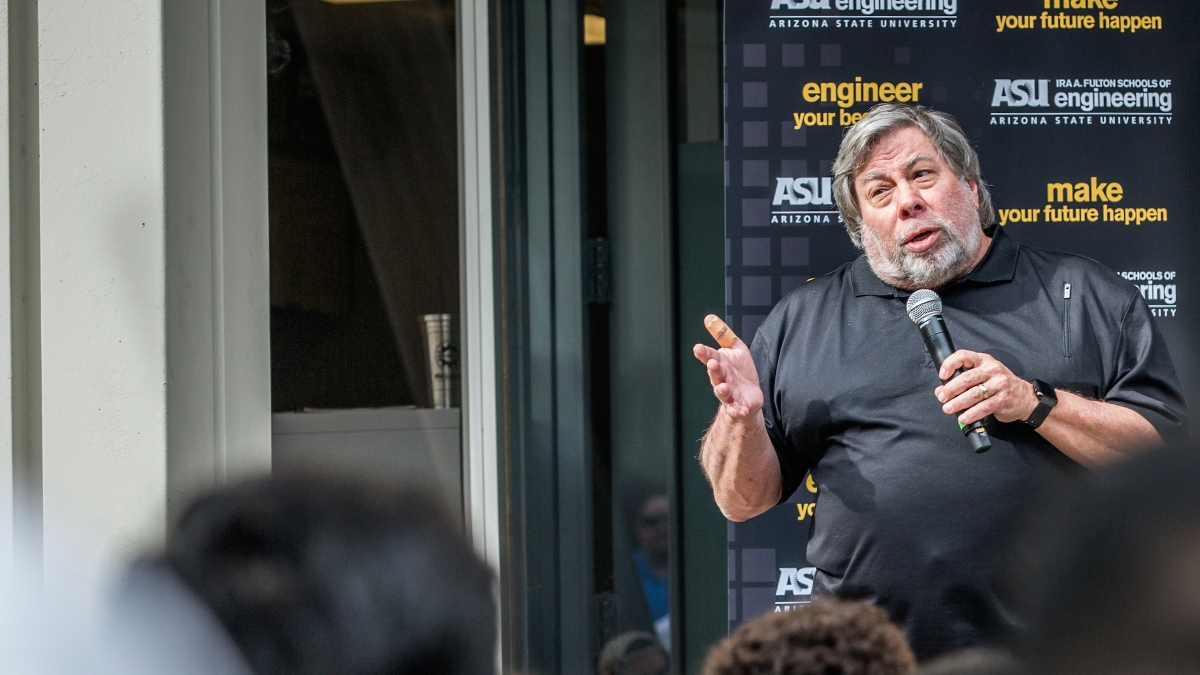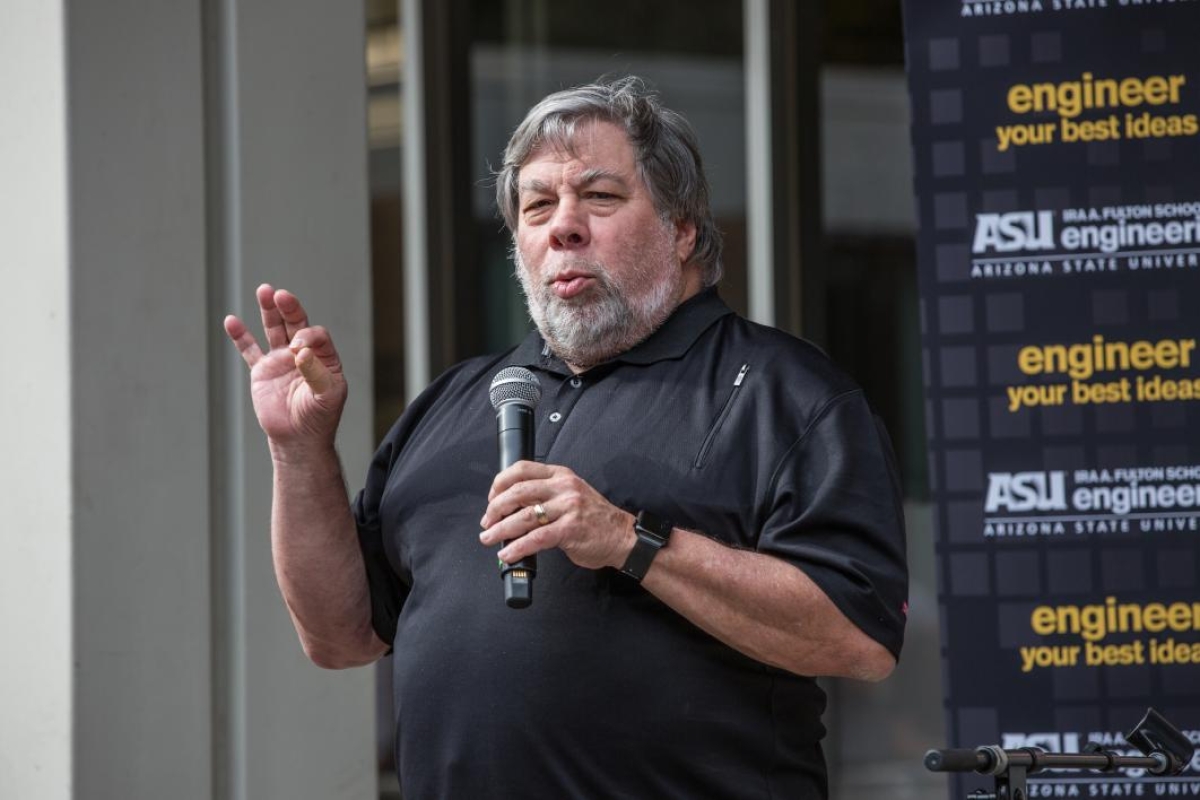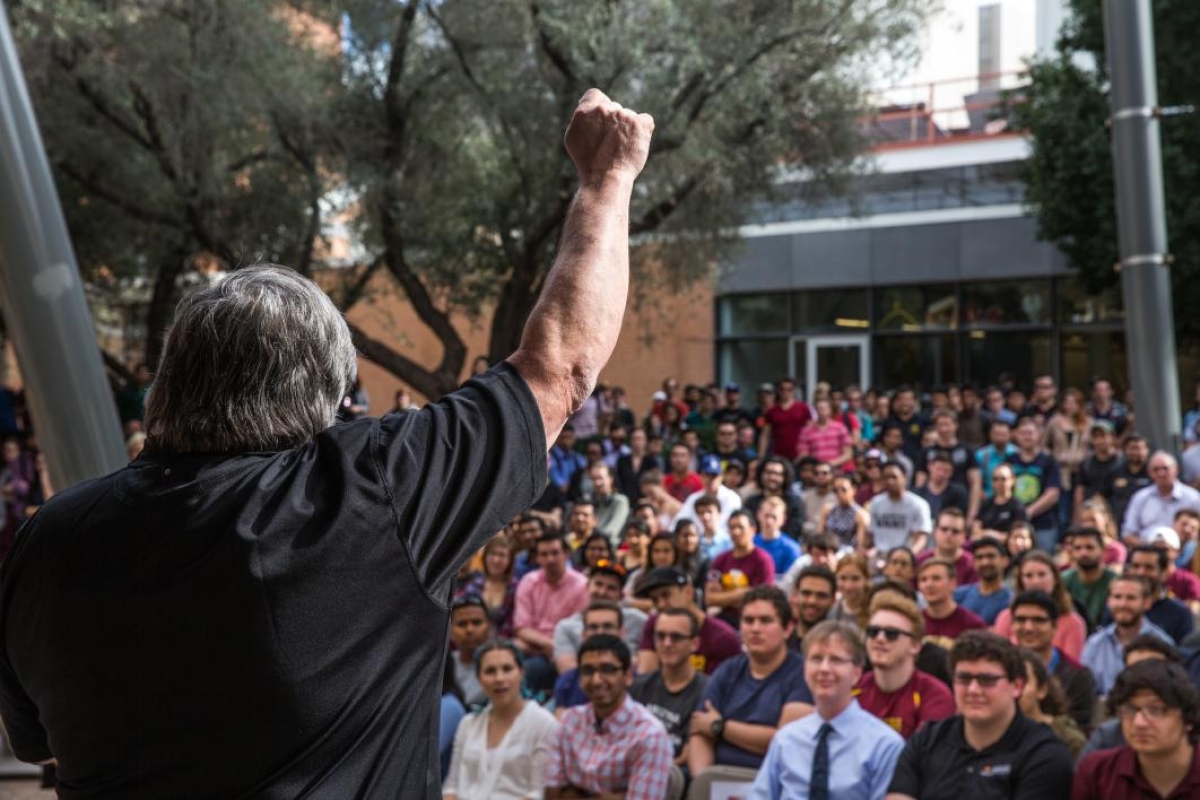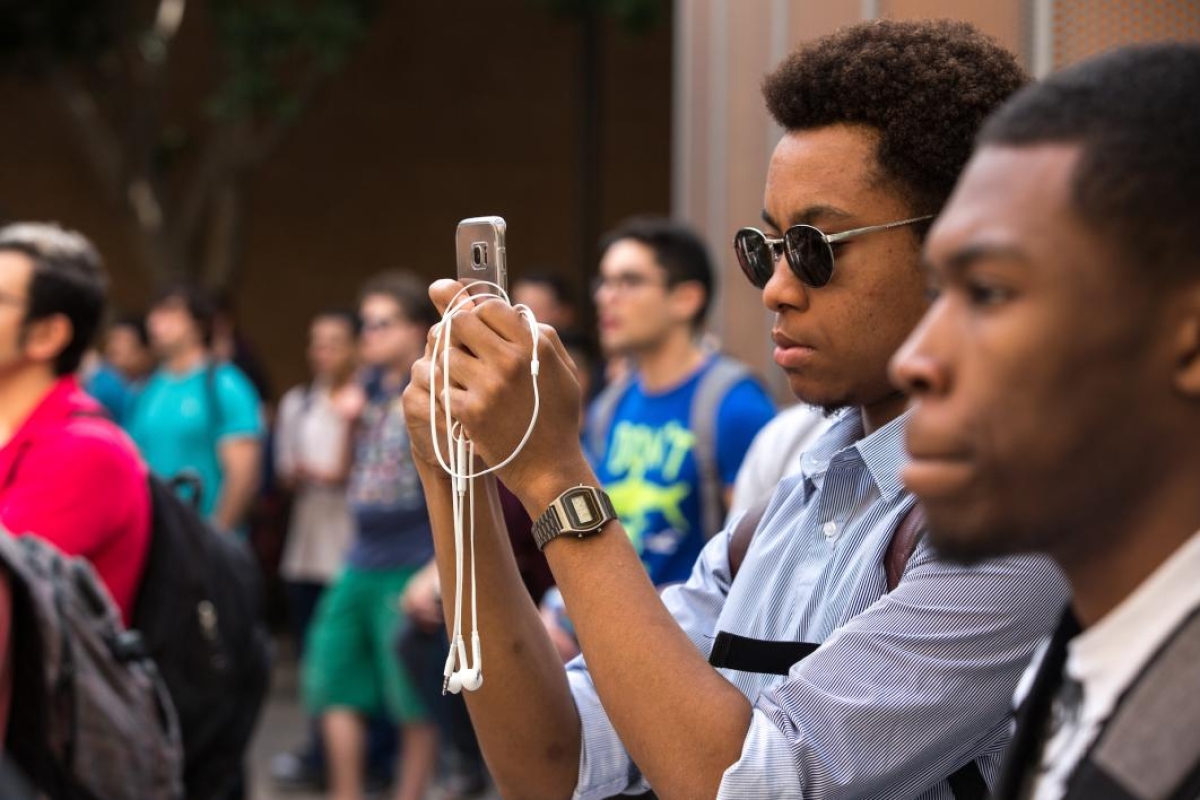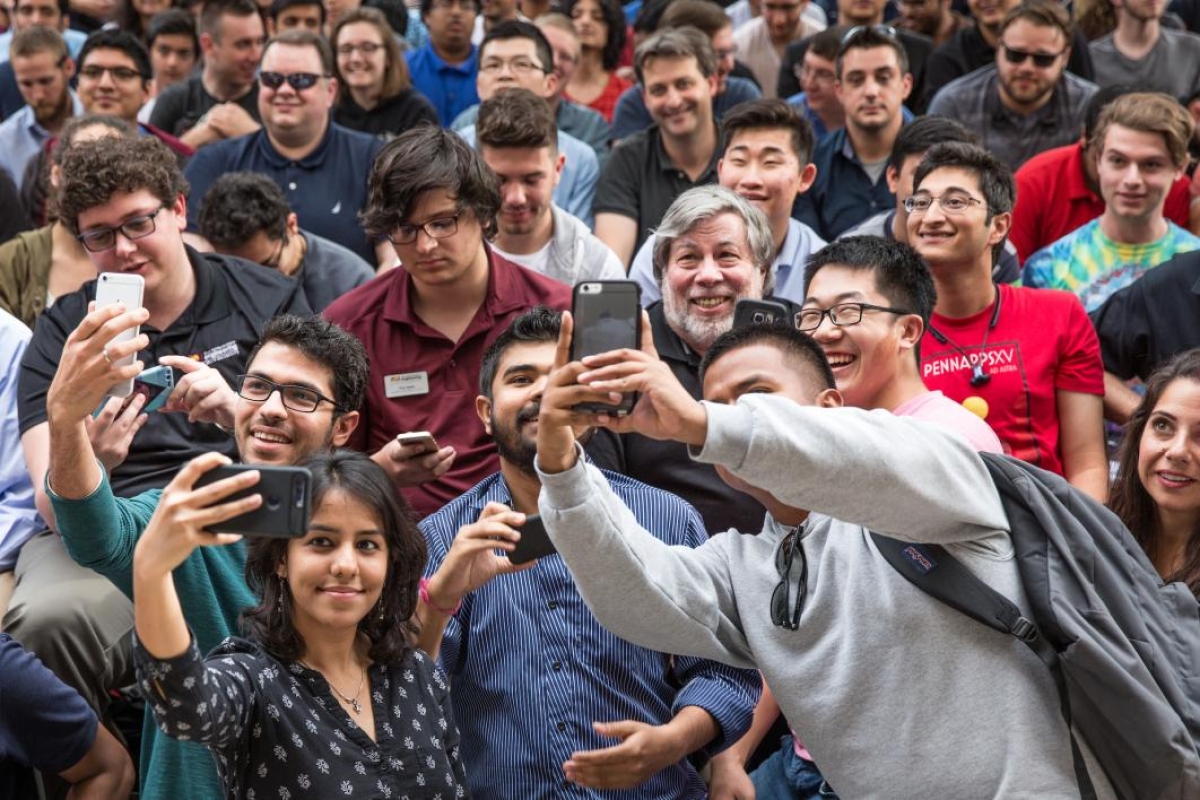Editor's note: This story is being highlighted in ASU Now's year in review. To read more top stories from 2017, click here.
Steve Wozniak, the Thomas Edison of his time, told several hundred students at Arizona State University on Wednesday to create products they “desperately want” and that “motivation is more important than knowledge.”
The Apple co-founder and personal computer pioneer came to ASU as a nod to National Entrepreneur Week and gave an impromptu talk to about 400 students in a courtyard outside an engineering building on the Tempe campus.
“A man who truly needs no introductions,” Ira A. Fulton Schools of Engineering Dean Kyle Squires said before Wozniak’s remarks. “He single-handedly invented the personal computer.”
Students sat on the ground and up in trees to hear Wozniak discuss the secrets of success, happiness and learning for an hour and a half. His impact on their lives was evident: laptops bulging in backpacks.
“I stumbled into computers by accident,” Wozniak began. “I decided early in life I wanted to be an engineer. … In high school we didn’t have computers, but we had great teachers.”
When he was in high school, he raided libraries at Stanford University for everything he could find on computers. “The smartest people in the world don’t lock doors.”
Before Wozniak started Apple, he would come home at night from his job at Hewlett-Packard and do little projects that honed his design skills and critical thinking.
“Having fun in life is more important than being successful,” he said.
He bonded with Steve Jobs over music (Bob Dylan, specifically) and playing pranks on people.
“I was building projects, and he was selling them,” Wozniak said. “The trouble is, he couldn’t design.”
When Wozniak was an engineer at Hewlett-Packard, he pitched the idea of the personal computer. They turned it down.
“In the first 10 years of Apple, we failed at everything,” he said. “Motivation is more important than knowledge.”
What makes a great product? “Something is good because it does good things for you.”
If you build what you want, it will be successful, Wozniak said. He wanted a computer for himself, then created the Apple II. Steve Jobs wanted an iPhone, so he created it. Elon Musk wanted a big electric car, so he built the Tesla.
“(Musk) was doing it for his own use,” Wozniak said. “That’s when you get great products. … The best marketing of all is not ‘Will people like my idea?’ It’s ‘Do I desperately want it for myself?’ If you desperately want it for yourself, you’re going to have a lot better insight than market-research assumptions and guesses and all that stuff.”
That part resonated with Pooja Addla Hari.
"He said that we have to build what we really want and make it sell even if market research says otherwise,” the freshman technology entrepreneurship major said. “It changed my life."
Wozniak took questions from students.
Did serendipity play a part in his success? “Luck is the greatest superpower of all.”
Where has he directed his philanthropy? “Museums. Divorces. Lots of things.”
Addla Har called Wozniak’s visit the “best thing that ASU has done for us."
"I was really excited when I knew that he was coming and came an hour ahead to get front-row seating,” she said.
Rashmi Bhambhani, a grad student studying chemical engineering, said she was a fan of Wozniak’s innovation, technology and ideas.
The thing he said that resonated with her most was "the want to keep learning because as an engineer that's the one thing you'd look for as inspiration.”
Anya Magnuson contributed to this report.
Top photo: Apple co-founder and PC pioneer Steve Wozniak tells ASU students that the best marketing of all is not ‘Will people like my idea?’ It’s ‘Do I desperately want it for myself?’ Photo by Anya Magnuson/ASU Now
More Science and technology

ASU professor breeds new tomato variety, the 'Desert Dew'
In an era defined by climate volatility and resource scarcity, researchers are developing crops that can survive — and thrive — under pressure.One such innovation is the newly released tomato variety…

Science meets play: ASU researcher makes developmental science hands-on for families
On a Friday morning at the Edna Vihel Arts Center in Tempe, toddlers dip paint brushes into bright colors, decorating paper fish. Nearby, children chase bubbles and move to music, while…

ASU water polo player defends the goal — and our data
Marie Rudasics is the last line of defense.Six players advance across the pool with a single objective in mind: making sure that yellow hydrogrip ball finds its way into the net. Rudasics, goalkeeper…


